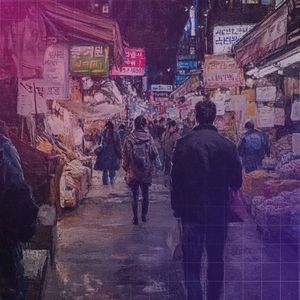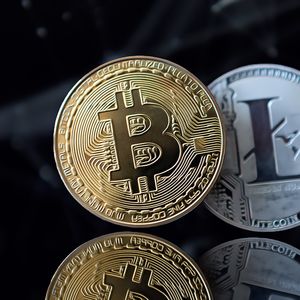Vendors at South Korea’s Dongdaemun Market say there is no truth in reports claiming they are turning en masse to USDT payments. At the start of the month, reports and crypto forum posters claimed that many traders at Seoul’s most famous fashion market were using the USD-pegged stablecoin as a payment tool. But a reporter from the South Korean media outlet Viewers wrote that the claims of mass USDT adoption at the market were “far from the truth.” Dongdaemun Market Lukewarm on Tether? In early December, posters on popular South Korean crypto forums claimed that “mass crypto adoption” was on its way after merchants at Dongdaemun started using USDT for “international transactions.” USDT’s market cap over the past seven days. (Source: CoinGecko) Multiple posters claimed that they had seen vendors taking USDT payments or even paying for goods using Tether at the market. The market, a series of multi-story buildings in East-central Seoul, is a hotspot for fashion and textiles in the capital. Comprised of 30 shopping malls and several outdoor markets, as well as wholesale markets, the area is particularly popular among Chinese shoppers. These include wholesale buyers who purchase items in South Korea for resale in Mainland China. The reports from earlier this month claimed that it was this group in particular that was driving USDT adoption, paying South Korean market vendors in Tether for their wholesale purchases. On one popular thread, South Koreans wrote that “friends who do business with Chinese customers “use USDT a lot.” Another claimed they had “bought items” for USDT at the market, while others still claimed that “about 10%” of wholesale trade at the market was now conducted using USD-pegged stablecoins. However, Viewers reporter Hwang Bo-ram said multiple vendors and traders at Dongdaemun Market claimed that cash, not crypto, is still their currency of choice. Dongdaemun Market in Seoul, South Korea. (Source: Neaners [CC BY 2.0]) ‘Still Too Early for Stablecoins’ Hwang wrote that while the general public is becoming more familiar with stablecoins, “many of the interviewees” the media outlet spoke to said it “is still too early to use them in real transactions.” But these same interviewees “agreed” that it was “possible that stablecoins” could “connect the conventional economy with the world of blockchain in the future.” The vendors hinted that cash transactions, unlike transactions on blockchain networks, are virtually untraceable. Presumably for tax purposes, many traders appear keen to leave as little trace as possible of their transaction records. Lee (given name withheld), a Dongdaemun-based men’s clothing trader of 20 years, told the media outlet: “There have been stories about crypto adoption here before. But the reality is, [stablecoins] are not used much in the market, contrary to the reports. Traders are quite change-averse. And they hate leaving behind evidence of their transactions. That’s why most transactions are carried out in cash here.” Shopping malls at Dongdaemun Market in Seoul, South Korea. (Source: Martin Röll/Großmarkthallen [CC BY-SA 2.0]) Age a Factor? Lee said there was another reason vendors are still uncertain about adopting stablecoins and Bitcoin (BTC) . The vendor explained: “Dongdaemun merchants are not likely to use crypto in peer-to-peer transactions because they tend to use agents to process payments on their behalf. I don’t know what will happen in the future. But I think that most won’t use stablecoins for the time being because of tax-related issues.” Park (given name also withheld), another Dongdaemun-based vendor at “a medium-sized trading company that targets Chinese customers,” said: “Most fashion traders were born in the 1950s and 1960s, so I think it is [difficult for them] to use cryptocurrency.” Regardless, it appears that there is no smoke without fire. In a December 24 article published in Weekly Dong-a , a leading mainstream media magazine, a tech journalist wrote: “While cryptocurrencies were mainly used for illegal transactions in the past, they have recently been actively used in the import and export of general goods such as clothing, textiles, and electronics.” Dongdaemun Design Plaza in Jung-gu, central Seoul, is celebrating the return of the holiday season with its annual media art festival, which drew up to 620,000 visitors last winter. https://t.co/1PEEc3PJ0o — The Korea Herald 코리아헤럴드 (@TheKoreaHerald) December 19, 2024 Smartphone Payments on the Rise The same article also included the sub-headline “Payment with cryptocurrency at Dongdaemun Market.” This prefaced a section on USDT and other stablecoins. Myung-hee (surname withheld), a part-time employee at a popular Dongdaemun shopping mall, told Cryptonews.com : “The stall I work out does not accept USDT or any other token. However, I do see a lot of Chinese customers paying using their smartphones around the area, with local vendors accepting the payments on their own handsets. I have no idea if these are crypto transactions or not – I really couldn’t say.” Dongdaemun to expand green belt to help Seoul become future city https://t.co/PD9MOY5uHv — The Korea Times (@koreatimescokr) October 24, 2023 Another author claimed on December 23 : “If you look around Dongdaemun, it’s easy to see Chinese traders or small import/export businesspeople paying with cryptocurrencies stored in their smartphone wallets instead of dollars, yuan, or Korean won.” USDT is also exceptionally popular in China and other BRICS nations , despite Beijing’s wide-ranging crypto crackdown. In 2019, Chainalysis wrote that Tether “dominates in China.” It called the stablecoin “the de facto fiat in Chinese trading.” The post South Korea: Dongdaemun Market Vendors Deny ‘USDT Pay Adoption’ Reports appeared first on Cryptonews .





















